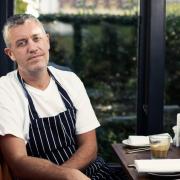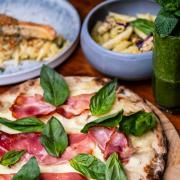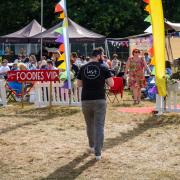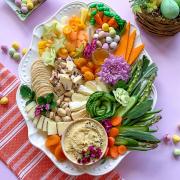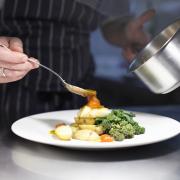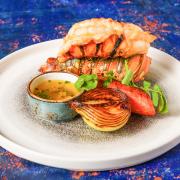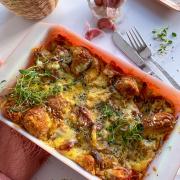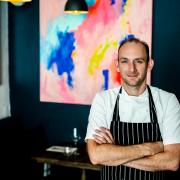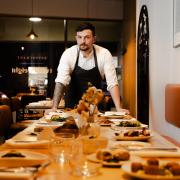A Wirral food business is helping to transform lives in Transylvania, writes Paul Mackenzie

She’s a long way from the green mountains of her homeland but a food firm on the Wirral is helping Dr Villo Lelkes to make a real difference to lives back in Transylvania.
Her Arduenna range of artisan jams, cheeses, pickles and charcuterie is helping to provide employment to women in a traditionally patriarchal rural village.
‘This is not just a business, there’s a lot more to it than that,’ said Villo, who previously worked for the European Commission in Brussels. ‘In the UK we hear a lot about how people are becoming sustainable but it’s a choice here, in Transylvania it’s a way of life. A lot of times people can’t afford to exist without people depending on each other and bartering – ‘you look after my children and I’ll work in your garden’.
‘Transylvania is one of the last untouched wildernesses of Europe and we want to keep alive their ancient crafts, production methods, tradition and local knowledge. People in Hungary say that when you visit Transylvania you understand more about being Hungarian. Transylvania is preserved in a way other countries are not any more in terms of its wildlife and countryside.

‘Abut a lot of people there have issues with fuel poverty and live off the land and there are community and social problems. Women often stay at home with the children because their husbands are forced to work abroad because of the economic situation. I thought why not create a social enterprise that would help people there with a business here.’
Villo, who formally worked as a policy officer in Brussels for the European Commission, launched her business last year and is already planning to expand her range to include homewares.
After studying law, Villo re-trained in psychology and moved to the UK four years ago, after meeting her neuroscientist partner. ‘Since I moved here I can mainly access supermarkets but I grew up on seasonal produce under Communism so we only saw bananas and oranges when they were available. I was used to pickling things to preserve them,’ she said.
‘Lot of shops here are Romanian shops selling industrial products so I thought why not sell luxury premium products.’
The business works with 12 women in Chibed, a fully ethnic Hungarian village with a patriarchal ethos which means women are often not allowed access to education or employment. Most of the work Arduenna offers is seasonal – foraging and harvesting fruits and vegetables in the mountains and forests – but Villo wants to develop year-round roles in weaving, embroidery and painting.
‘Our shifts take their families into account,’ Villo said. ‘We have to fit our business around their lives and their availability. We want to train them about how to stand on their feet.
‘We pay a living wage which is about 46% over what they would normally get for this type of work. We also distribute part of the profits back to the women. We also buy at a fair price and we have a partnership with a local cheese maker and an artisan meat comes from a family business and because we are working with them it means they can employ more people.
‘We are in the process of developing a kitchen and homeware range and we want the business to grow horizontally which will allow us to keep the quality consistent and to employ more women.’
The Arduenna range – the name is Celtic for Transylvania – includes five flavours of onion marmalade made with an ancient local variety of onion, a wide selection of cheeses, salamis, sausages and hams. There are also fruit cordials, preserves and compotes, all of which available through the company website and at food festivals while negotiations continue with supermarkets interested in stocking the products.
‘If the business takes off we can change it to a co-operative and we would like to provide some training to make the women more self-sufficient,’ Villo said. ‘The entrepreneurial spirit was killed by Communism and I grew up this way. It took a long time to understand I could be an entrepreneur and I have got to learn the skills along the way.’








